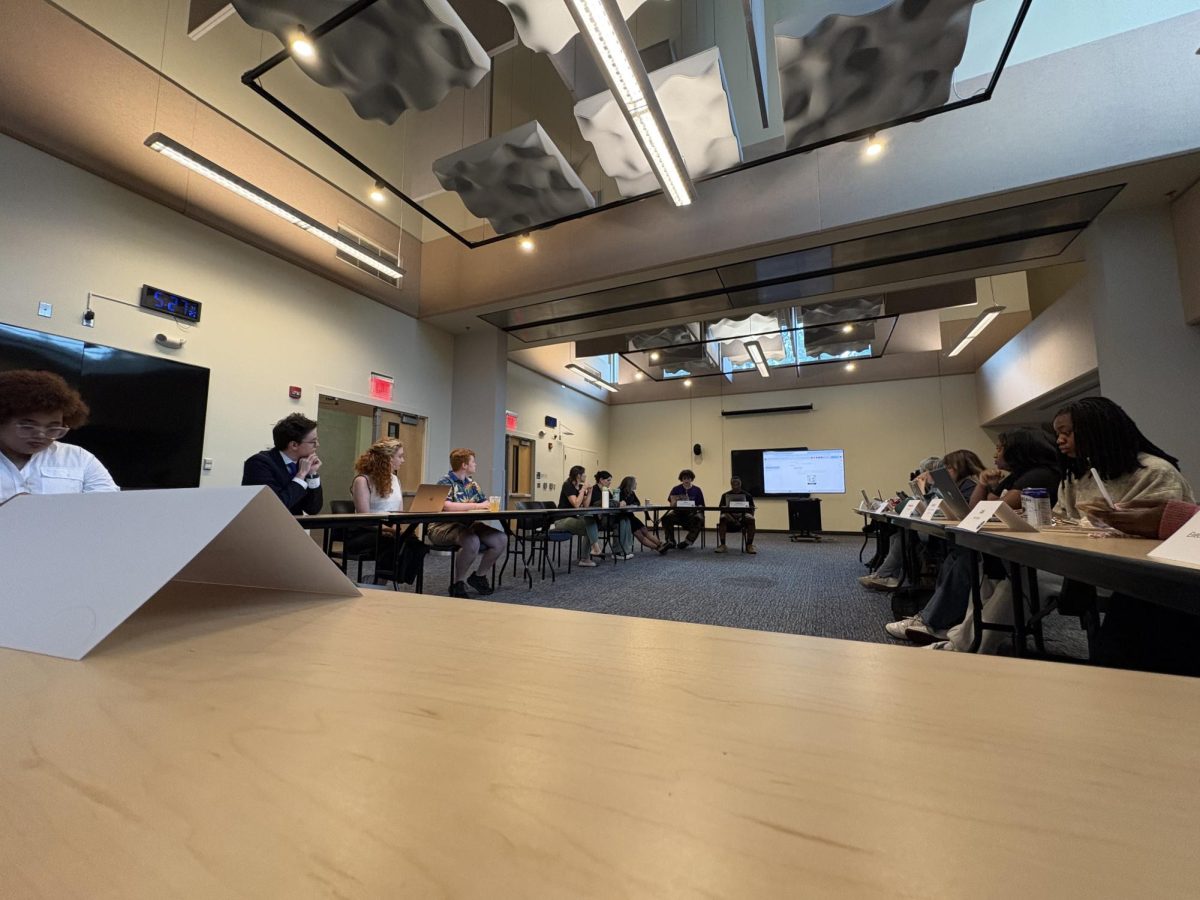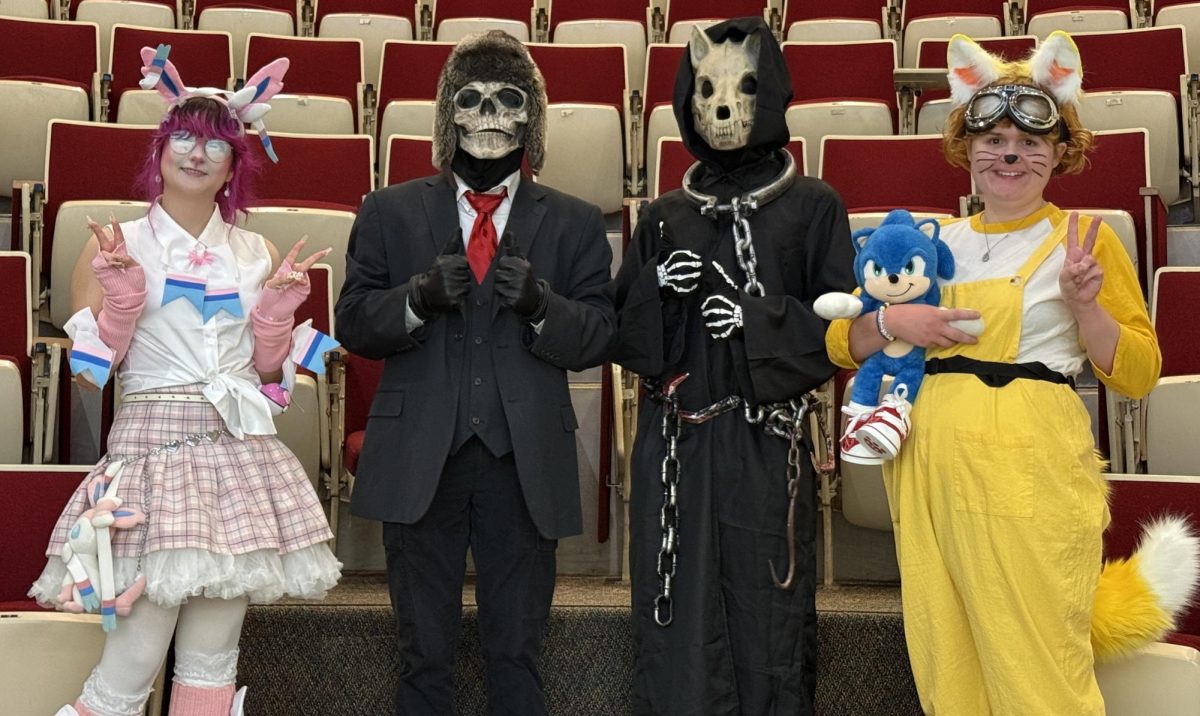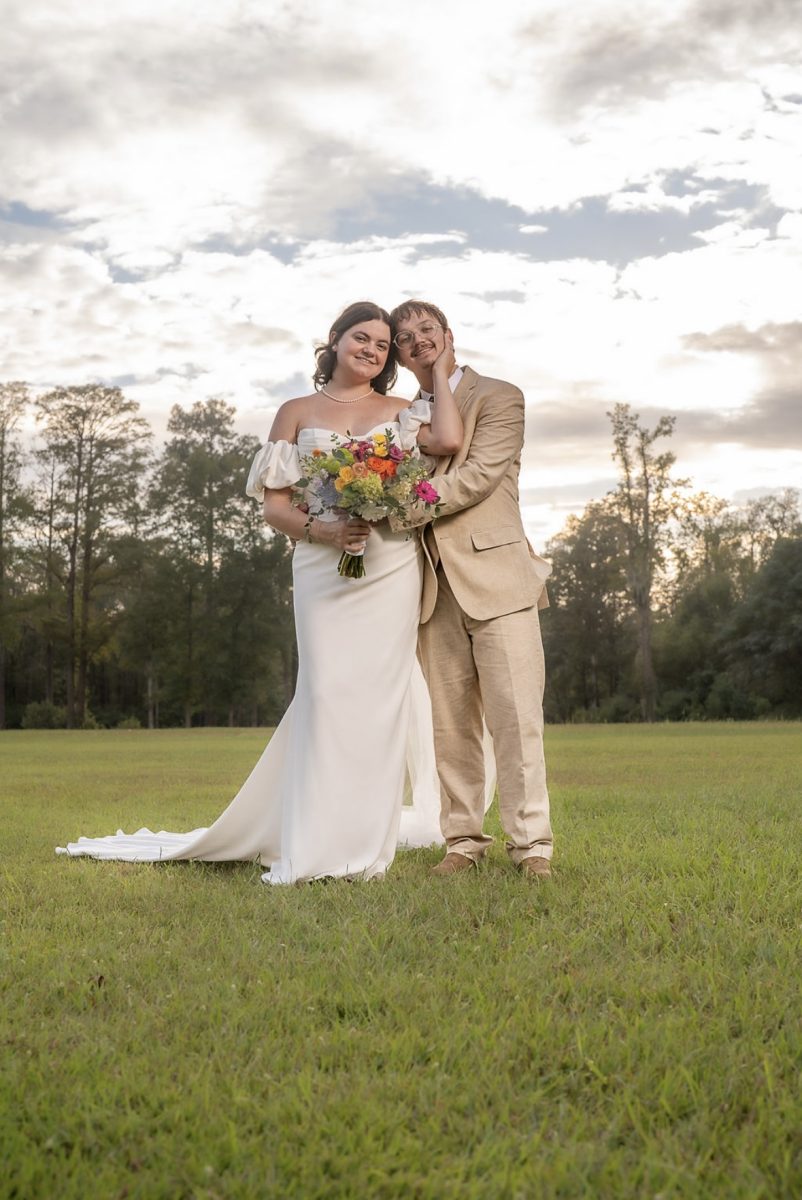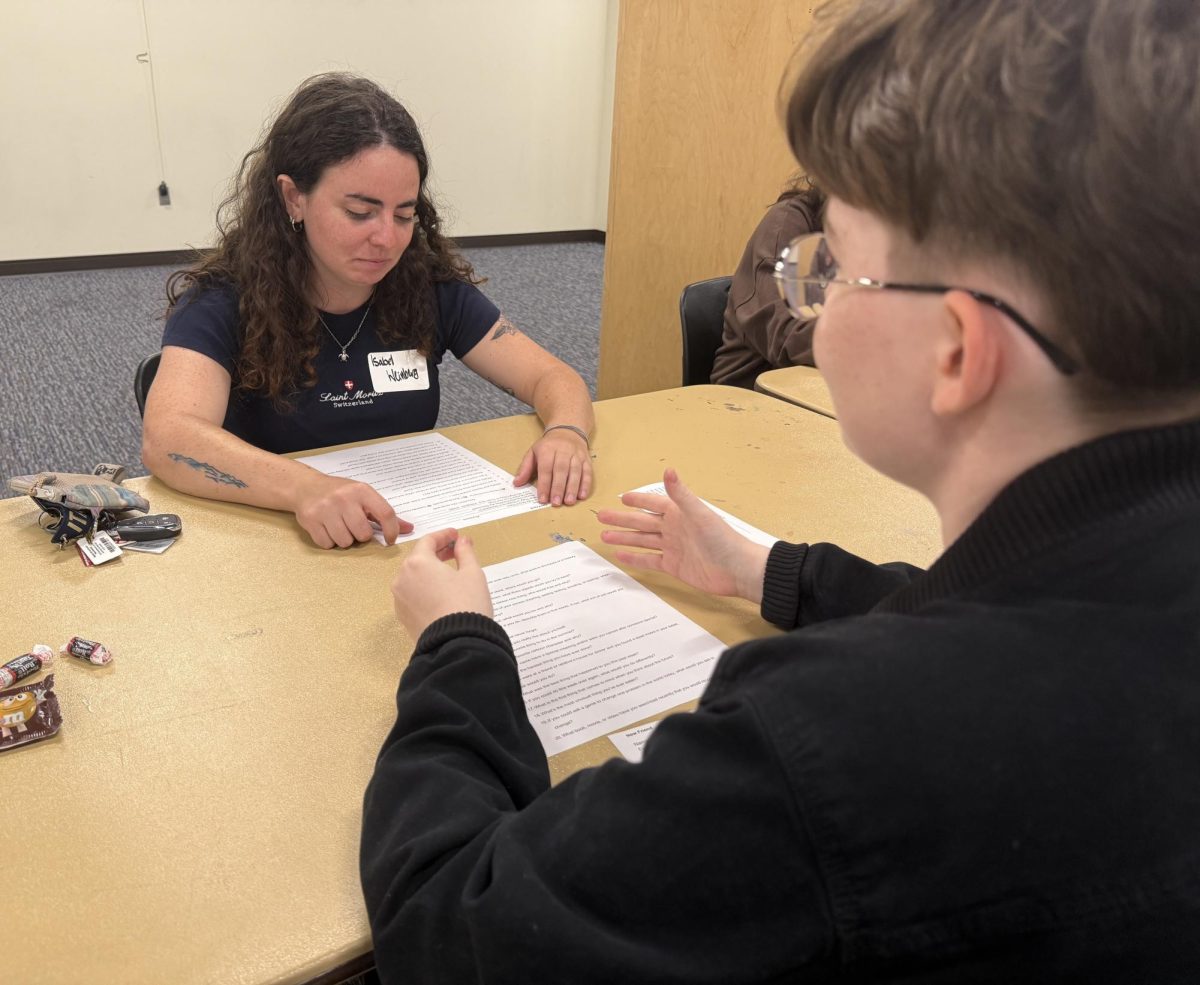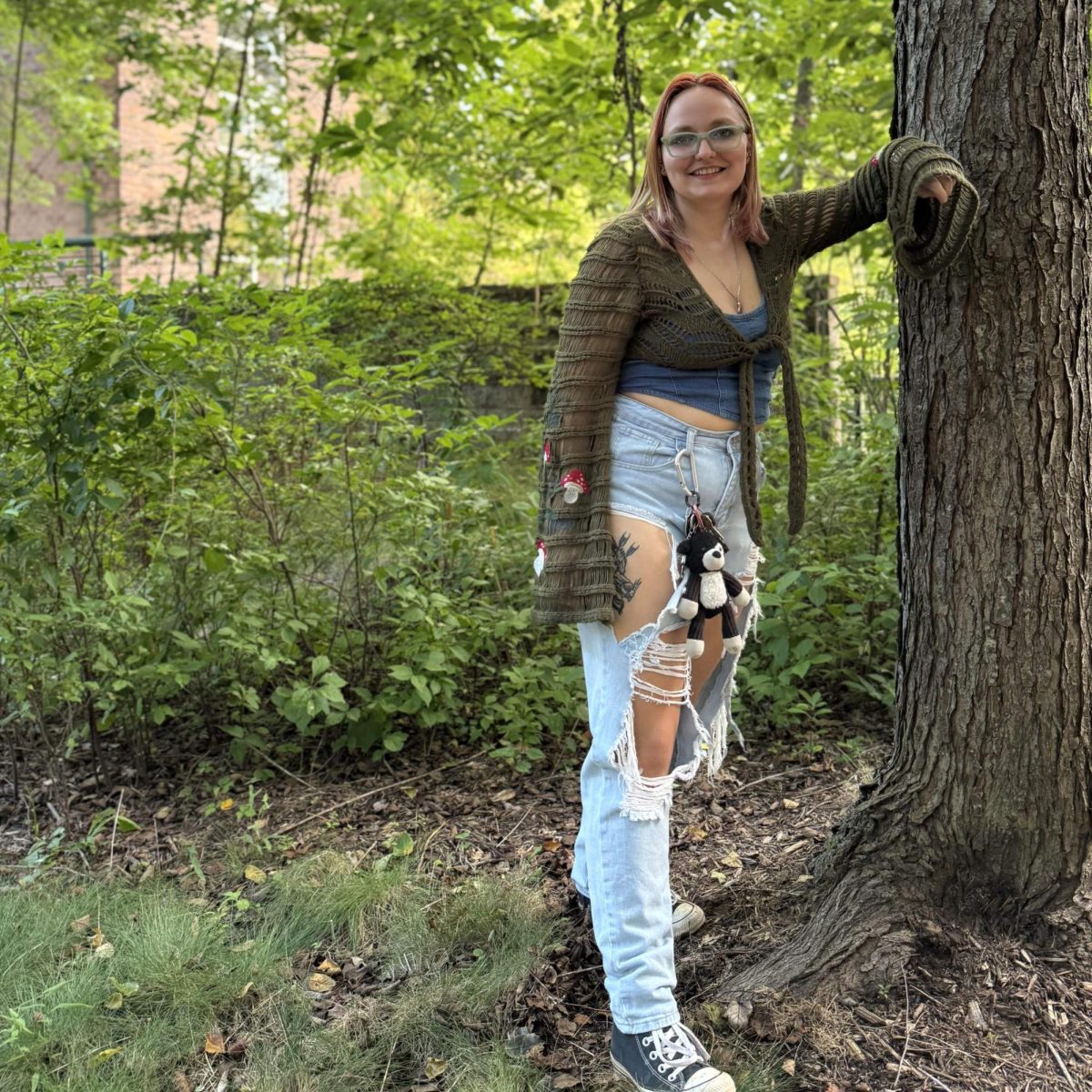How the hurricane affects people varies even influencing the secrets they keep. For some, the hurricane offers an excuse to escape from a campus that never fit well with them. For others, it forces them to dig deeper and commit more to the community than they ever had before. Most students will never know the sacrifices of those who stayed to help get everyone safely away from campus but what about the month after?
–
Jonah Weikel, graduate community director for the Ridges, is a commuter student at Western Carolina University, splitting his time between his higher education and his position at UNC Asheville. In his role at UNCA, he directly helps supervise and mentor resident assistants as well as build community. As the hurricane approached, Weikel and other leaders in housing helped the campus brace for the incoming storm.
“Preparing for the hurricane, we knew it was coming. We didn’t know nearly how bad it was going to be,” Weikel said.
While Weikel’s position involves helping students adjust to big changes, he was also preparing for a big change himself; getting married.
“So I was actually out of town when the hurricane hit. I got married on September 28th, which was the day after. I was down in Wilmington the entire time,” Weikel said.
While Weikel said his vows, his supervisors and other hall directors were on campus ready and able to assist students during the crisis.
“While me and my wife weren’t on campus to directly experience the impacts of hurricane Helene, I definitely had confidence in my staff that no matter what came up that they would handle it and also that my supervisor was there if they needed anything,” Weikel said.
One such member of Weikel’s staff, Liv Knight, RA in West Ridge, stayed on campus until the Monday after the Hurricane assisting students.
“Jonah is a really good hall director and just a supervisor in general. I’d say that he’s pretty communicative and he’s pretty easy going and flexible with our schedules and lets us know whatever’s going on. He keeps us updated,” Knight said.
Weikel not being there during the hurricane meant having less of a support system, said Knight.
“I just relied on myself and the other people on the team that were also willing to step up and do what we had to do to make this work,” said Knight.
While still able to enjoy getting married, Weikel said he also confronted difficult emotions in the process.
“I say that we picked a bad weekend to get married and I say that with a bit of humor, but I was very frustrated, not with anyone in particular but just at the fact that I couldn’t do anything. Because ultimately the reason my job exists is to support the RAs in supporting the residents and if I wasn’t here, I couldn’t guarantee success, I had confidence in the staff but it’s definitely one thing when you can see it versus when you’re hearing about it,” Weikel said.
Along with worrying about the staff came other difficulties with the wedding like guests not being able to make it due to the storm including Weikel’s best man, Weikel said.
“It was really just like, we just tried to make the most of it there, and then I tried to make the most of it when I was back,” Weikel said.
Despite Weikel wanting to return to campus immediately after the wedding, due to hazardous traveling conditions he was advised otherwise.
“My supervisor, he was doing what he was told and he just told me to not come back because it would just make things more complex. I understood that that was a product of the hurricane, hearing that was tricky because I want to do everything I can,” Weikel said.
By the time Weikel was able to return to campus, he made it his mission to help the other community directors and staff working days on end.
“My first weekend back I think three of the hall directors went to one of their parents’ houses down in South Carolina and were staying with them because they had clean water and internet and all that. It felt good to give them a break,” Weikel said.
Weikel spent the next month flushing toilets, checking rooms for flooding, and helping students get their belongings all while still not having clean water on campus.
“The water thing was really, really tough. I shower frequently, I shower about twice a day, when I wake up and before I go to bed and so adjusting to not having water that we could bathe in, it was really tricky. FEMA brought a shower trailer on campus, which was great and incredibly helpful, but still not convenient. It was freezing out and we’d have to walk about a mile to go take a shower and then walk back while cold and wet but ultimately that’s not anything I blame the university for or anything like that,” Weikel said.
To keep morale up during breaks, Weikel and other staff on campus went to the gym and played pickleball or basketball.
“I think pretty much the entire UNC system came together to help us. We had police from ECU come up. We had dining staff from UNC Chapel Hill come up. Pretty much every other institution in the system housed our student athletes. We have students that are enrolled in the engineering program here and at NC State and NC State just took all of those students on campus and offered for them to finish the semester there. It was really cool to see. There’s positives and negatives, but it was really cool to see everybody come together and really make an effort,” Weikel said.
In addition to the other UNC system schools, Weikel credits RAs for their work during the hurricane.
“We did our own RA appreciation thing privately amongst all the RAs but I really don’t think we sung their praises to the residents enough. That would be my biggest message at large is I don’t think there’s a single RA around this campus that’s out to get people. Everyone that you speak to, from RAs to the Chancellor, will tell you that they are here to help students. No matter what you are coming to an RA with, even if it’s far above their pay grade, they will get you the person they need,” Weikel said.
Knight said the RAs were in the same boat as the residents and felt the same emotions as other students but did what they could to help.
“I don’t think residents realize how much their RAs think about them,” Weikel said.
Weikel also credits the students who came back and picked up belongings for dropping off food, water and other supplies.
“Both to the students and the parents of the students I appreciate all the things that they did to try to help us get back on our feet so we could get them back up here to deliver the education that they’re here for”, Weikel said.














